The second weekend of June is busy for all of Waco! As summer temperatures return after a week of rain, expect neighbors and tourists alike to be soaking up the sun, tearing up the town, and gathering together in community.
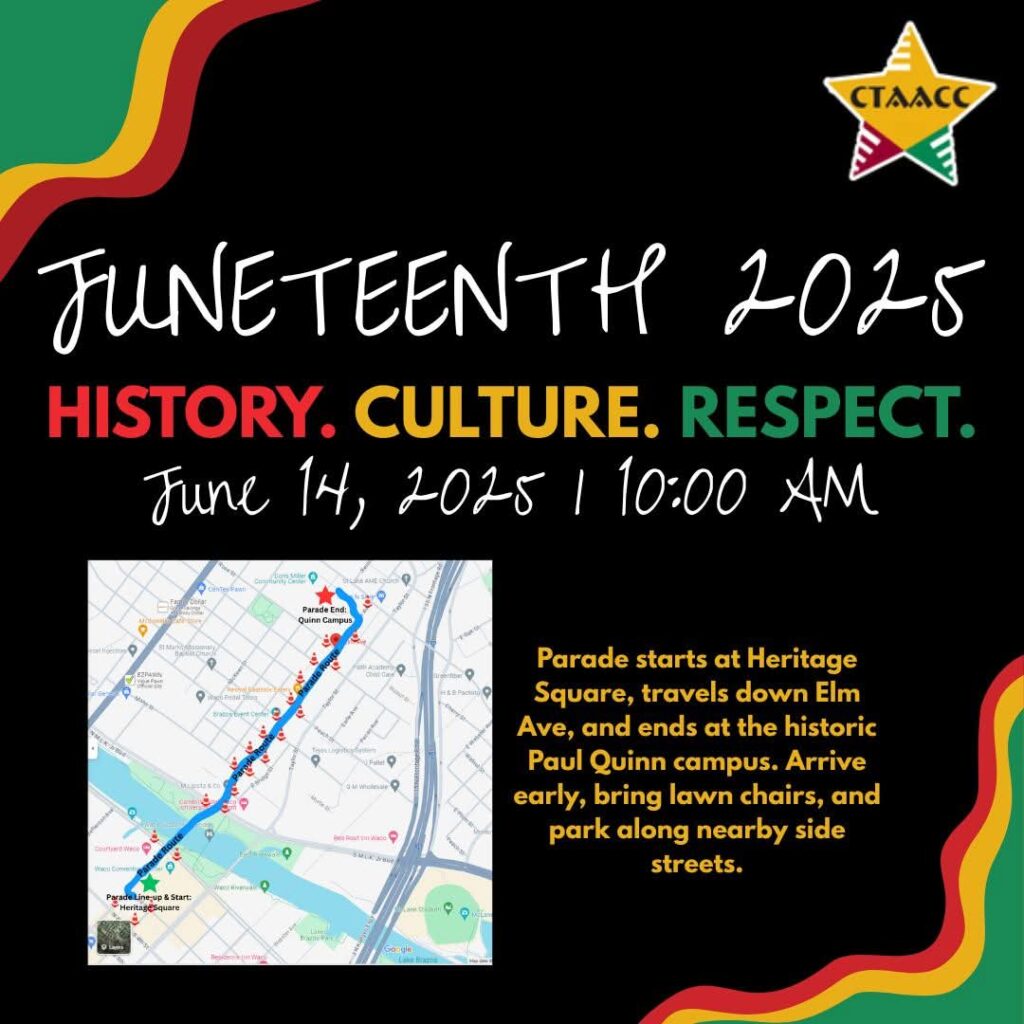
FUN FACT: The earliest documented Waco celebration occurred in 1876, which included a two-thousand-person procession led by the Waco Colored Band and local societies, including the Rising Stars and the Young Men’s Club. The groups waved bright-colored banners and wore dazzling uniforms. The parade ended at Waco Creek, in the southern part of the city, where celebrants listened to various speakers and a reading of the Declaration of Independence. Afterward, they danced, sang, and ate together. Read more HERE!
The farmers market will operate on normal hours, but don’t miss the parade starting at 10am! The Juneteenth Parade Celebration will kick off on Elm Avenue. This event, annually hosted by the Central Texas African American Chamber of Commerce, will be starting at Heritage Square Park, traversing down Washington Avenue, and ending at Quinn Campus in East Waco.
Join the community in reflection and celebration of Freedom Day! From noon to 1:30pm, the No Kings Protest will be gathering at Valley Mills Drive and Waco Drive in recognition of the Nationwide Day of Defiance. Setting up at what has been deemed Waco’s Freedom Corner, this event will continue commemorating the impact of Freedom Day, recognizing Flag Day and the genesis of the US Army, and protesting subjectivity within our own country.
Art Center Waco screening the short documentary “I Have A Story To Tell” at 2pm. The film, presented and directed by De’Viar Woodson, documents the first year of A Beautiful Message, an art program founded by Vincent Thomas. The program encourages students to engage in mural painting, leadership training and exhibiting their artwork.
The screening is part of New Growth: Celebrating Juneteenth and Freedom Through Black Hair, a juried exhibition on view from May 22 to June 26. In collaboration with A Beautiful Message, Art Center Waco is showcasing works by 14 Texas-based African American artists who explore the cultural and historical significance of Black hairstyles—ranging from afros and cornrows to locs and braids.
These hairstyles represent both identity and resistance. According to African folklore, enslaved women used intricate braiding patterns to communicate escape routes and hide items like seeds and coins to support survival after escape. In this way, hairstyles became powerful tools for freedom and cultural preservation.
This weekend is the perfect time to get out and connect with the Waco community. Whether you’re exploring local art, attending special events or simply spending time with neighbors, there’s no better way to celebrate the creativity and culture that make our city so vibrant. Come out, show your support and be part of the story.
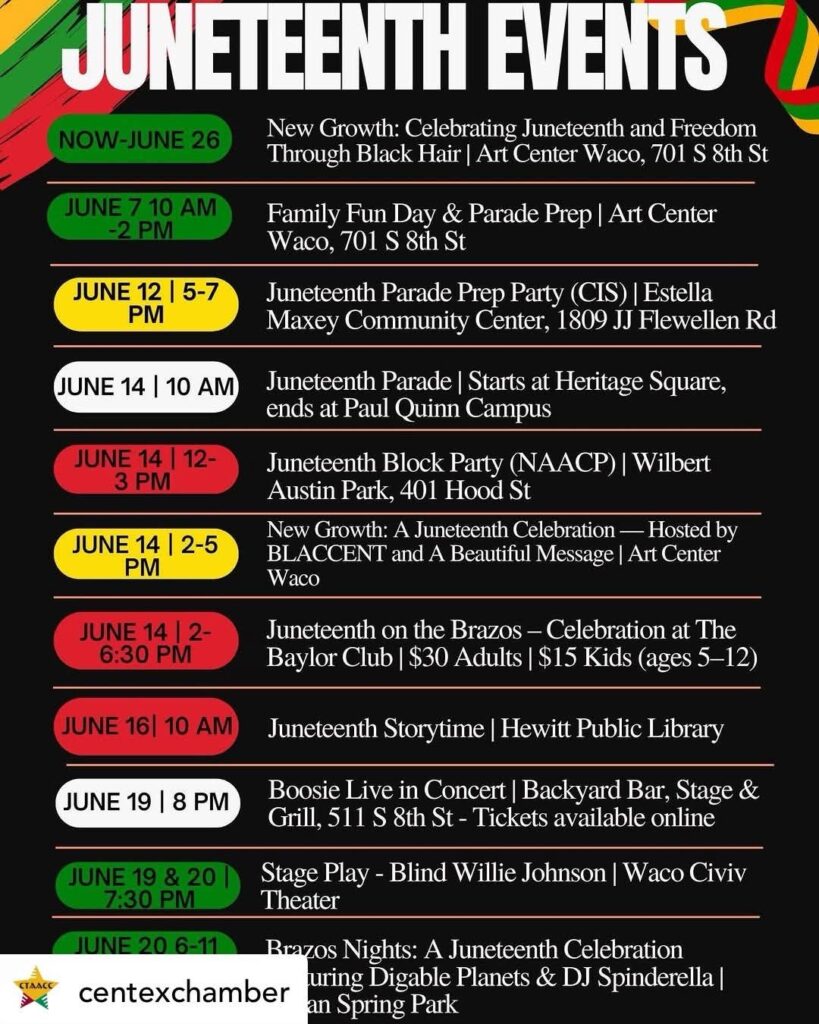
By Sarah Chavez
MCC Social Media and Communications Specialist
In March we celebrated Women’s History Month and reflected on the contributions women have made throughout history to our society and Waco community. While the month-long celebration is over, we will continue to celebrate their contributions and wanted to highlight some of the stories of influential women on the MCC campus who have changed the lives of many.
Growing up in a small town like Palestine, Texas inspired MCC professor and NAACP president of Waco Chapter, Dr. Peaches Henry to value community and equality which led her to create programs dedicated to young women in STEM and social justice programs.
During Henry’s elementary school days, her friends would run past and whisper to her that her dad was on campus. Her father prioritized her school’s community and showed up to the PTA meetings. Henry’s favorite memory is when her dad guaranteed her segregated elementary school was the first school in town to get air conditioning.
“My parents were involved in the NAACP. They instilled in me a desire to make sure that everyone had their rights. It came naturally to me because of my upbringing. I wanted to advocate on behalf of people. The NAACP is an organization that has been fighting for that for over a hundred years. I was inspired to become a part of that fight going forward,” Henry said.
Henry’s “Hidden Figures” STEM project based on the inspiring book and film motivates and empowers middle school girls to learn engineering, technology, science, and math. Henry recently saw one of the students who took this class and the student told Henry about how the program made her realize she could go to college and major in science.
“What we need to remember is that I may have impacted 50 or so girls, but each of those 50 girls will impact even more,” Henry said.
MCC’s Director of Visual & Performing Arts, Lise Uhl’s life has been influenced and changed by music from listening to Ella Fitzgerald records in her childhood home, to transferring to a university in Ohio for a music program, to meeting her husband at the Waco Civic Theatre in the production of “Brigadoon”.
This summer, Uhl will celebrate 43 years of working at MCC. She says the program’s growth is more than she could have expected. After establishing a real budget, the program turned around because they finally had the budget for productions and costumes.
“I mean, I just did what I had to do to make it go, to deliver the program. It went from little, tiny productions with pianos to full scale operas,” Uhl said.
Extra time and effort from the theatre faculty is how the program thrived. Faculty helped with costumes and production sets with no credit or payment. She was thrilled and grateful for their willingness to put in extra time for the program.
“At the time, these were the very best people in the world. They were not receiving any payment for it. They were doing it out of the goodness of their hearts. I’m grateful to Danny Vamos for seeing that vision with me,” Uhl said.
Uhl hopes in the future the program will have a stronger relationship with four-year universities and create a music degree for students to continue their education at MCC.
“We have a lot of students who come here for a music degree. They get their start here. They’re here for two years and that goes fast for them. Many of them are hesitant to move on because they’re so comfortable here. They like the way they are taught,” Uhl said.
These are just a few of the stories out of the many strong, influential women who have changed the lives of many at MCC and in the greater Waco community.
The Waco-McLennan County Public Health District has partnered with area African American churches, the Waco NAACP, and VOICE to host a second “Shots for Souls” COVID-19 Vaccination Drive 1-4 p.m. Sunday, Nov. 14, at the Health District, 225 W. Waco Dr.
Participants can choose from the Pfizer, Moderna, or Johnson & Johnson vaccines. Adult vaccines, including boosters, and vaccines for children 5 years of age and older will be available. Lunch for the first 200 participants will be provided by the NAACP. Walk-ins are welcome and registration can be done on-line at covidwaco.com or at 254-750-5460.
“The holidays are fast approaching, and the health district is working with several organizations to get vaccines distributed just in time for the holidays,” said LaShonda Malrey-Horne, director of the health district. “The health district is collaborating with Waco NAACP, local Black churches, and VOICE Waco to offer vaccines to the East Waco community so families can enjoy the holiday season safely this year.”
Vaccination is the most effective way to slow the spread of disease and significantly decrease hospitalizations and fatalities due to COVID-19.
By Rev. Susan Finck
Because I come from a family of lawyers and almost became one myself, I am usually drawn to all things legal. But I must confess, when I received a little white card in the mail summoning me for jury duty, I was contemplating how I might avoid serving. How could I have enough time for sermon preparation? What about my other responsibilities? What if I got “stuck” on a horrible, violent case? I knew it was part of my responsibility of being a citizen, so I headed downtown, wrestling with my inner objections.
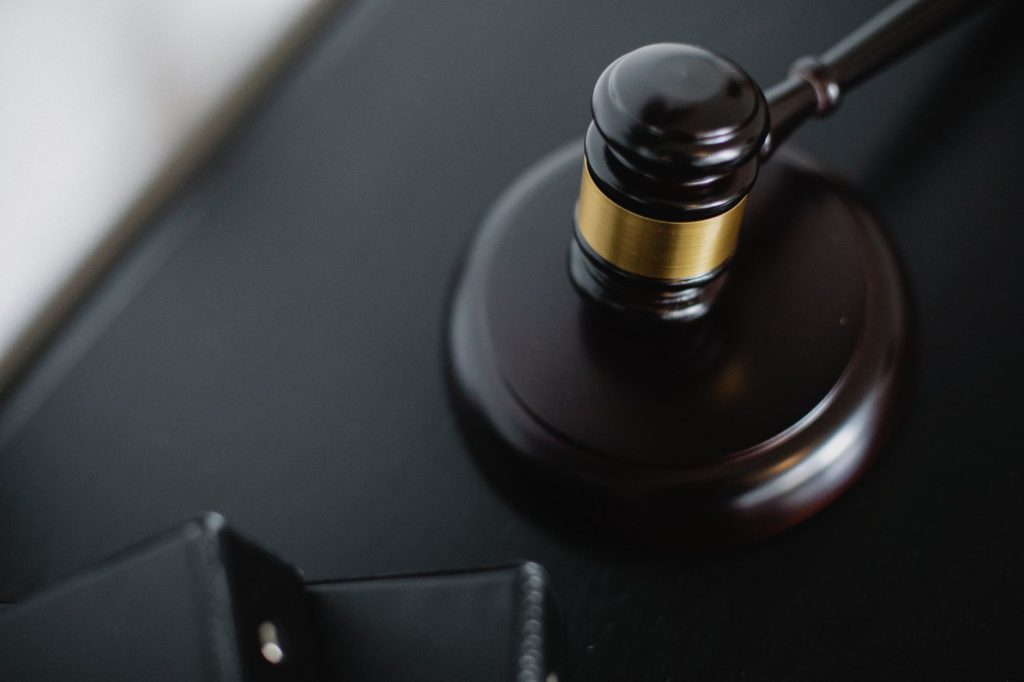
I was chosen first for the larger panel, and my interest and curiosity turned to concern as we were seated. I noticed the racial disparity in the room. The defendant was the only AfricanAmerican. Perhaps two of the 50 or so potential jurors might have been Hispanic or people of color. Everyone else was white: the attorneys, the judge — even the bailiff. (The room did not reflect our county: 55% white, 27% Hispanic, 15% Black.) “How does he feel?” I wondered, as I looked at the defendant.
My mind flashed back to all I had read about Waco’s troubled racial history, and the racial history in this country. From slavery, to reconstruction, then Jim Crow. The segregation that had been entrenched in our own community, that my older church members recall vividly. The phenomenon of mass incarceration throughout our country. “Will he be able to truly get a fair trial?” I wondered, as I looked at his court-appointed attorney. I know they are frequently overloaded with cases and often can’t provide the same high quality defense that money can buy.
Then I was chosen for what became an all-white jury of 12. It was the defendant’s fourth DUI, and he was arrested after swerving markedly while driving (without a license) and testing substantially over the legal blood alcohol limit. The prosecutor presented a video where we saw the car swerving, and we heard the officer’s respectful, appropriate interaction with the defendant. We saw documentation of the defendant’s blood alcohol level. Sadly, I voted for a guilty verdict.
After being seated in the courtroom once again, we heard information we had to consider when issuing the “punishment.” Here is where I agonized. The prosecution was recommending a sentence that could put him in prison the rest of his life, since he was an older man. I asked if there was a way that we could sentence the defendant to mandatory confinement in a rehab facility or other location where he could receive the medical/psychological intervention we all felt he needed. I asked about alternatives: programs to help him, rehabilitation. He had been sentenced to those before and had done well while in prison. The problem was when he would get out of prison, “family members couldn’t keep him from behind a wheel.”
It took us several hours to deliberate the “punishment phase.” Most of the jurors were ready to hand down the recommended sentence. I was overcome with the weightiness of our task. We would be responsible for sending a man away from his family and depriving him of his freedom. We also had a duty to protect society. There wasn’t a good solution. It was sad and hard — made harder by the racial dynamic.
“I need for us to ask ourselves the question,” I said. “If he was white, would we be taking this same course of action?” I got a mix of responses, all from the perspective of “color doesn’t matter.” One of the other jurors confronted me: “If he goes free, and you pick up the Trib and read where he kills a child, how are you going to feel?” Obviously we are weighing odds and probability. I changed my vote.
We were escorted back into the courtroom. His family filled two rows of the gallery, the only African-Americans present. I was praying as I looked around. Then, one of the older women caught my eye. It was like she read my thoughts, overhearing my prayer. For an extended moment, we were connected.
I’m not usually a cry-er. As much as I tried to fight it, and as much as I was embarrassed, I cried in the jury box that day. I cried for the family. I cried for the defendant. I cried for our history in Waco; and for “the system.” I cried from the weight of the decisions I had to participate in.
I came away from that experience with a deepening of a conviction that we need more attorneys in our county who are people of color. And jurors, especially jurors. Jury service pulled me out of my own self-focus and broadened my perspective, making me more passionate about the justice I say I believe in. I found many of my beliefs and biases challenged; I had to choose between a list of heartbreaking options. How “severe” was what he had done? How do we equate that with a number of years of someone’s life?
How did depriving him of his freedom balance with protecting society or even his own life?
If you get the little white card in the mail, I want to encourage you to think beyond how you might be inconvenienced. Jury service will cost your time and your mental and intellectual energy. You will have to find others to cover work and home responsibilities. Things will go undone. But it takes all of us to make our society work and work fairly.
The little white card may be your invitation to be faithful to your values or your God, if you are a person of faith. Instead of, “Oh, no, how can I get out of this?” What if you thought: “If I am called, I will willingly serve to do my part to witness for truth and justice. My voice, in dialogue with those of my fellow community members, is needed.”
Besides serving if you are called, I want to invite you to think of any Hispanic or Black young adults you know who might make good lawyers. Ask them if they’ve considered this path. Tell them you can see them in this role. Encourage. Plant that seed.
Finally, join Waco NAACP Black History Month Criminal Justice Series (on Zoom):
“Who Let George Zimmerman Go?: How Being a Juror Serves Justice,” 6:30-8 p.m., Feb. 22, free. One juror could have prevented George Zimmerman, the man who killed Trayvon Martin, from being acquitted. Yet, African Americans are routinely prevented from serving on jurors. Worse, many African Americans actively work to avoid jury duty. William Snowden, founder of The Juror Project, aims to eliminate both these problems.
“Breonna Taylor Could Have Gotten Justice: The Power of Grand Juries,” Feb. 28, 6:30-8 p.m., free. Had the members of the grand jury who heard the Breonna Taylor case known the power they had to call witnesses or issue subpoenas, the outcome might have been different. Award winning, board-certified Criminal Defense attorney Tyrone Moncriffe, explains the grand jury procedure, the power that jurors have, and why it is crucial that African Americans serve on them.
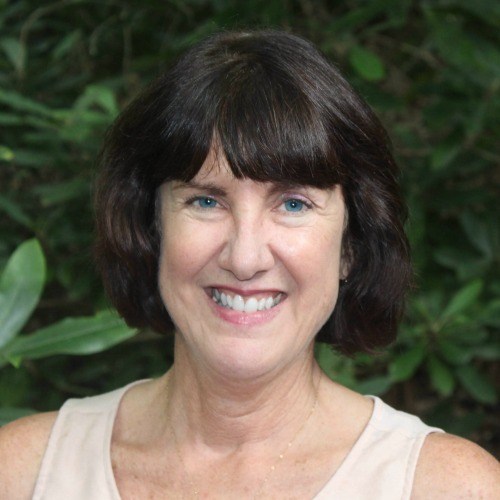
Rev. Susan Finck serves as the pastor of El Calvario Presbyterian Church in North Waco and a board member for Greater Waco Legal Services. She is passionate about literacy and education in our city, and encouraging opportunity for everyone to fulfill their callings. She and her husband, Dr. Bill Lockhart, a long-time instructor at McLennan Community College, have lived in Waco since 2001. They have four adult children and two grandchildren.
The Act Locally Waco blog publishes posts with a connection to these aspirations for Waco. If you are interested in writing for the Act Locally Waco Blog, please email Ferrell Foster at [email protected].
By Dr. Peaches Henry
Ahmaud Arbery, I don’t want to know your name,
Because knowing your name means your mother is grieving your unjustifiable death.
Knowing your name means you are an unarmed Black man who died at the hands of a white man—
A white man who thinks that he has the right to police your body
Whether or not he is a cop,
Whether or not, if he is a cop, you have committed a crime,
Whether you were simply living your best life,
Snacking on Skittles and iced tea,
Playing your music loudly while pumping gas,
Sitting on your couch eating ice cream,
Sleeping in your own bed,
Settling into a daily run,
Living while Black.
Ahmaud Arbery, I don’t want to know your name.
Because knowing your name means I must add you to that heartbreaking, breath-stopping, stomach-wrenching, always growing, never-ending catalog of murdered Black men, women, and children.
That did not begin with Emmitt Till nor end with Trayvon Martin or Eric Garner or Michael Brown or Tamir Rice or Freddie Gray or Sandra Bland or Philando Castillo or Alton Sterling or Bootham Jean or Breonna Taylor or George Floyd or countless more.
Yet knowing your name means to honor your life.
To say your name is the first step in the journey toward justice for you.
Knowing your name means to protest anti-Black violence,
To scream “Black Lives Matter” in the futile hope that the loss of your life matters.
Ahmaud Arbery, I don’t want to know your name.
Because knowing your name turns my mind to my own twenty-five-year-old son.
Like you, each day he goes for a jog in a predominately white neighborhood.
His neighborhood.
So Ahmaud Arbery, to know your name terrifies me
And causes me to double over in a silent wail of agony every morning,
And to breathe again only when the door opens to reveal my Black Eagle Scout, dean’s list, not-safe-at-home law student.
Ahmaud Arbery, I don’t want to know your name.
But I will learn your name.
I will memorialize you by ritually reciting your name in perpetuity.
I will remember it, because like Emmitt, Trayvon, Eric, Michael, Tamir, Freddie, Sandra, Philando, Alton, Bootham, Breonna, and George you deserved to live in obscurity unknown to me
Not killed by a white man’s bullet or knee on your neck.
I will stand with your mother, uphold your memory, and fight for justice,
Because my son jogs too.
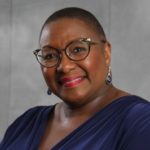
Peaches Henry is an English professor at McLennan Community College. She is currently teaching online and sheltering in place with her eight-month old black Labrador puppy and her son who has returned home from law school.
